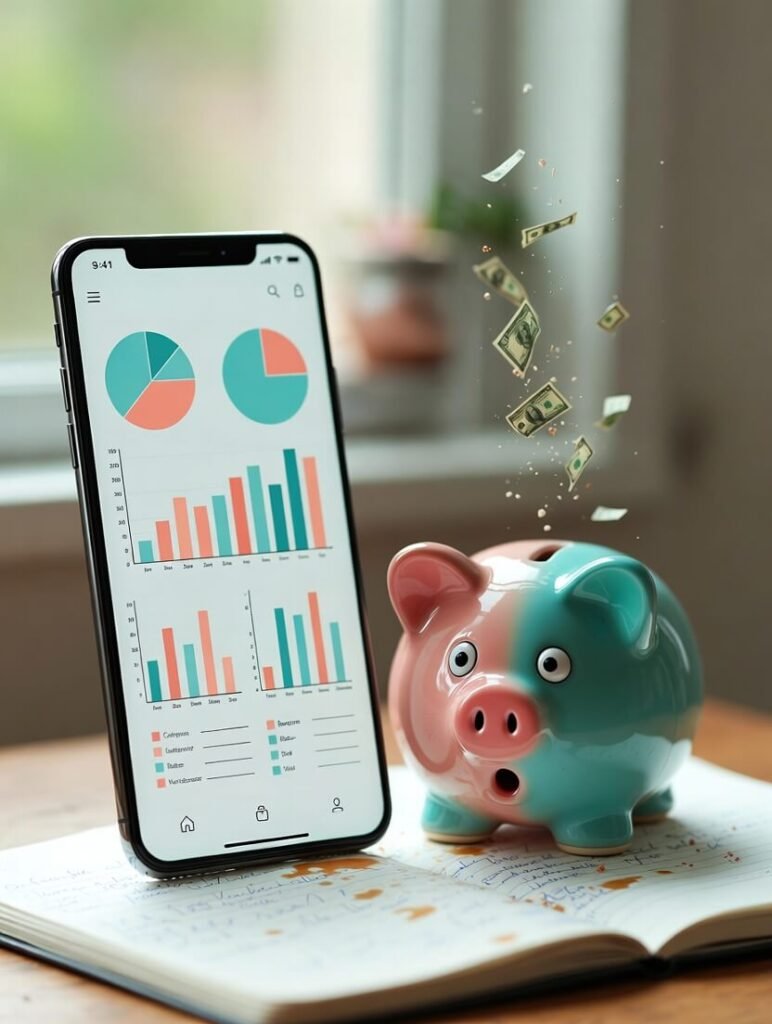Okay y’all, best budgeting apps to take control of your money—yeah that’s what I’m talking about right now because holy crap I need it. I’m sitting here in my messy apartment in the US, January 2026, staring at my phone bill that’s somehow $40 higher than last month because I forgot to cancel that random streaming service again. Like seriously, how do you adult without accidentally funding three different meditation apps you never use? Anyway.
I used to be the queen of “I’ll just wing it” with money. Spoiler: winging it means eating ramen for dinner while crying over a $200 overdraft fee. True story from like last summer when I impulse-bought concert tickets then realized rent was due in three days. Embarrassing? Yes. Relatable? Probably you too. So I finally caved and tested a bunch of these best budgeting apps to take control of my money, and lemme tell ya—not all are created equal. Some feel like a judgmental friend, others like a chill roommate who just wants you to succeed.
Why I Even Bothered With Best Budgeting Apps to Take Control of My Money
Look, I tried spreadsheets. I really did. Color-coded Google Sheets that lasted exactly four days before I got overwhelmed and started ignoring them. Then Mint died (RIP), and I was lost. These apps though? They pull transactions automatically (most of ’em), categorize stuff, and some even yell at you gently when you’re about to blow your grocery budget on DoorDash again. Which, guilty.
I want best budgeting apps to take control of my money because I’m tired of that pit in my stomach when I check my account. You know the one. So here’s my super honest, flawed-American take on seven solid ones I actually used (or rage-quit and came back to).
1. YNAB (You Need A Budget) – The Tough Love One
YNAB is like that friend who grabs your credit card and says “no more Starbucks until you pay off Visa.” It’s zero-based budgeting—give every dollar a job. Sounds intense, right? It is. First month I hated it because I had to actually plan ahead instead of living paycheck to paycheck in denial.
But damn, after like two pay cycles, I had real savings goals happening. Costs $109 a year or something ridiculous, but they have a free trial that’s long enough to feel the magic. If you’re serious about best budgeting apps to take control of your money, YNAB changes your brain. Check their site: You Need A Budget official.

2. PocketGuard – The “How Much Can I Actually Spend?” Hero
This one is my current fave for lazy days. PocketGuard literally tells you “hey idiot, after bills and savings goals, you have $47 left to blow this week.” Super simple snapshot. I love it because I used to think I had money until I didn’t. Now it stops me from ordering pizza when I’m broke. Free version is decent, premium around $75/year. Great for beginners dipping toes into best budgeting apps to take control of your money. More here: PocketGuard.
3. Monarch Money – The Pretty One That Doesn’t Judge (Much)
Monarch is gorgeous. Clean charts, customizable, tracks investments too if you’re fancy. I tried it during a promo (50% off first year sometimes), and it felt less like budgeting and more like adulting with nice visuals. Good for couples too—my partner and I could see everything without fighting over a shared spreadsheet. Around $100/year normally. If aesthetics help you stick to best budgeting apps to take control of your money, this one’s it. Official link: Monarch Money.
4. Goodbudget – Envelope Stuff But Digital
Old-school envelope method but on your phone. You “fill” digital envelopes for groceries, fun, etc. Free tier is solid, premium unlocks more envelopes. I liked it because it forced me to stop robbing Peter to pay Paul. Physically satisfying to see envelopes deplete. Check it: Goodbudget.

5. Rocket Money – The Subscription Slayer
Formerly Truebill, this thing hunts down subscriptions you forgot about and helps cancel them. Saved me like $60/month once I found three zombie trials. Also has budgeting but the real win is bill negotiation sometimes. Free basic, premium $6-12/month. If subscriptions are killing you, best budgeting apps to take control of your money start here: Rocket Money.
6. EveryDollar – Dave Ramsey Vibes
Zero-based like YNAB but simpler and cheaper (free basic, premium for auto-import). I used it when I was super broke and needed something straightforward. No frills, just works. If you’re into the baby steps thing, go for it: EveryDollar.
7. Quicken Simplifi – The Set-It-and-Forget-It Option
This one’s more dashboard-y, great reports, forecasting. A bit pricier but if you want to see projected balances months out, it’s clutch. I bounced off it at first because too many features, but came back when I wanted more planning. Quicken Simplifi.

Anyway, I still mess up. Last week I ignored PocketGuard’s warning and bought concert tickets (again). But overall? These best budgeting apps to take control of your money actually helped. Pick one, stick for 30 days, see what clicks. Your future less-broke self will thank you.
Which one are you trying first? Drop a comment or whatever—I’m curious if anyone else has rage-quit YNAB like me lol. Start small, you got this. Or at least pretend like you do until it becomes real. 😅










































